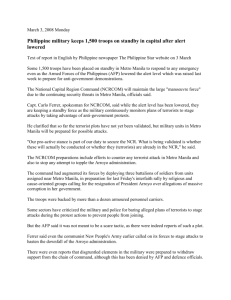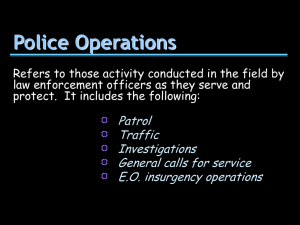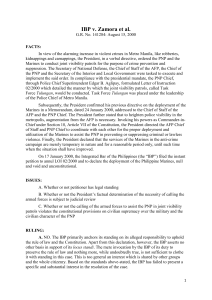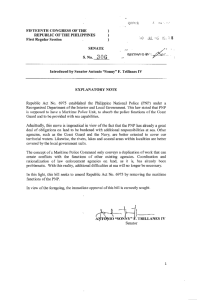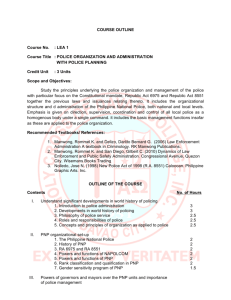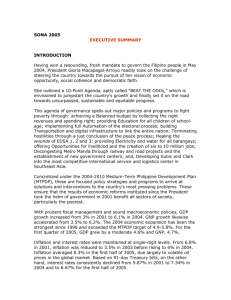PDF Version
advertisement
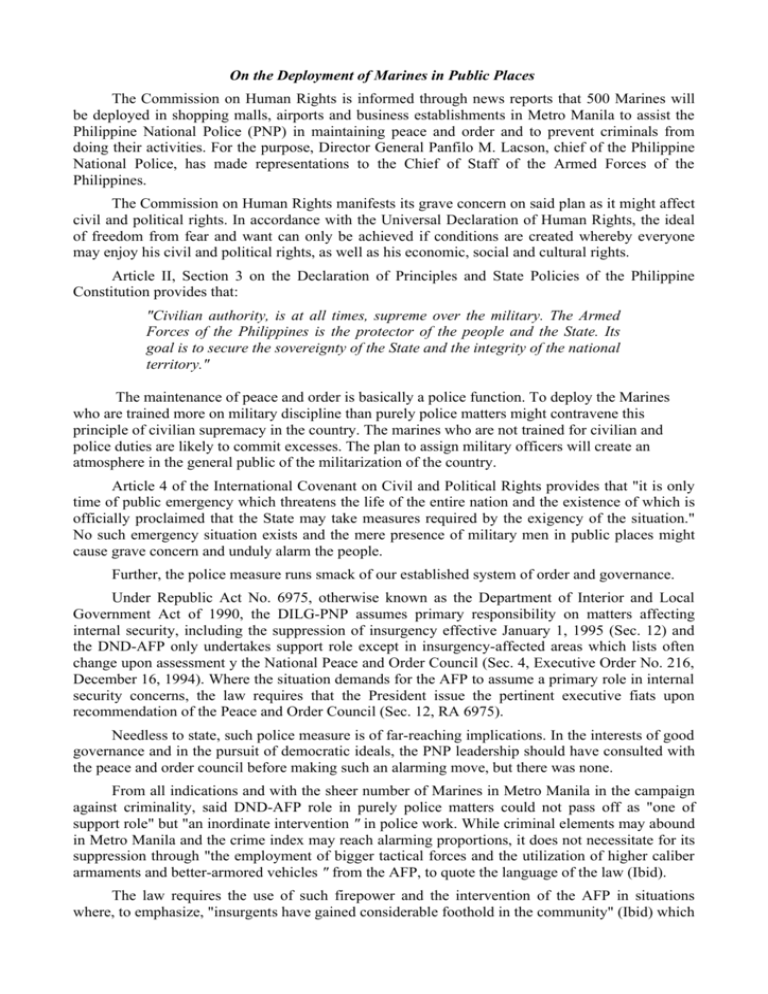
On the Deployment of Marines in Public Places The Commission on Human Rights is informed through news reports that 500 Marines will be deployed in shopping malls, airports and business establishments in Metro Manila to assist the Philippine National Police (PNP) in maintaining peace and order and to prevent criminals from doing their activities. For the purpose, Director General Panfilo M. Lacson, chief of the Philippine National Police, has made representations to the Chief of Staff of the Armed Forces of the Philippines. The Commission on Human Rights manifests its grave concern on said plan as it might affect civil and political rights. In accordance with the Universal Declaration of Human Rights, the ideal of freedom from fear and want can only be achieved if conditions are created whereby everyone may enjoy his civil and political rights, as well as his economic, social and cultural rights. Article II, Section 3 on the Declaration of Principles and State Policies of the Philippine Constitution provides that: "Civilian authority, is at all times, supreme over the military. The Armed Forces of the Philippines is the protector of the people and the State. Its goal is to secure the sovereignty of the State and the integrity of the national territory." The maintenance of peace and order is basically a police function. To deploy the Marines who are trained more on military discipline than purely police matters might contravene this principle of civilian supremacy in the country. The marines who are not trained for civilian and police duties are likely to commit excesses. The plan to assign military officers will create an atmosphere in the general public of the militarization of the country. Article 4 of the International Covenant on Civil and Political Rights provides that "it is only time of public emergency which threatens the life of the entire nation and the existence of which is officially proclaimed that the State may take measures required by the exigency of the situation." No such emergency situation exists and the mere presence of military men in public places might cause grave concern and unduly alarm the people. Further, the police measure runs smack of our established system of order and governance. Under Republic Act No. 6975, otherwise known as the Department of Interior and Local Government Act of 1990, the DILG-PNP assumes primary responsibility on matters affecting internal security, including the suppression of insurgency effective January 1, 1995 (Sec. 12) and the DND-AFP only undertakes support role except in insurgency-affected areas which lists often change upon assessment y the National Peace and Order Council (Sec. 4, Executive Order No. 216, December 16, 1994). Where the situation demands for the AFP to assume a primary role in internal security concerns, the law requires that the President issue the pertinent executive fiats upon recommendation of the Peace and Order Council (Sec. 12, RA 6975). Needless to state, such police measure is of far-reaching implications. In the interests of good governance and in the pursuit of democratic ideals, the PNP leadership should have consulted with the peace and order council before making such an alarming move, but there was none. From all indications and with the sheer number of Marines in Metro Manila in the campaign against criminality, said DND-AFP role in purely police matters could not pass off as "one of support role" but "an inordinate intervention " in police work. While criminal elements may abound in Metro Manila and the crime index may reach alarming proportions, it does not necessitate for its suppression through "the employment of bigger tactical forces and the utilization of higher caliber armaments and better-armored vehicles " from the AFP, to quote the language of the law (Ibid). The law requires the use of such firepower and the intervention of the AFP in situations where, to emphasize, "insurgents have gained considerable foothold in the community" (Ibid) which condition does not obtain in Metro Manila much less in shopping malls. Indeed, the Commission is amused to no end at the deployment of these marines in shopping malls in Metro Manila after the Christmas season and the New Year when criminal elements who ply their trade therein are provided lesser opportunities as people in the malls considerably thin out. The PNP leadership may do well to reflect on the spirit and wisdom of the law and reconsider its strategies in the campaign against criminality in Metro Manila even as they keep their zest to protect the public from harm. Particularly, the Commission urges the PNP leadership and all concerned to drop the police measure, as it is inimical to the promotion of a human rights friendly environment in the country. Quezon City, 10 January 2000
